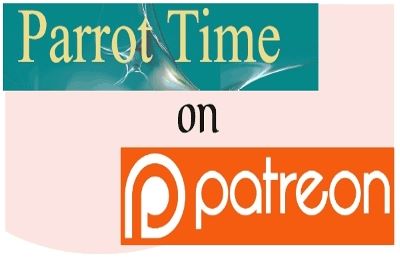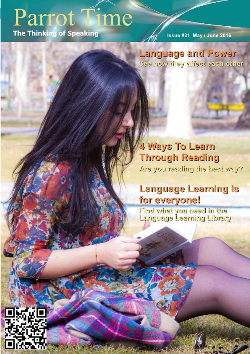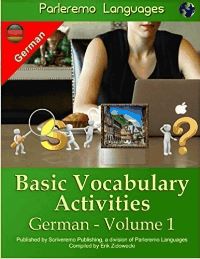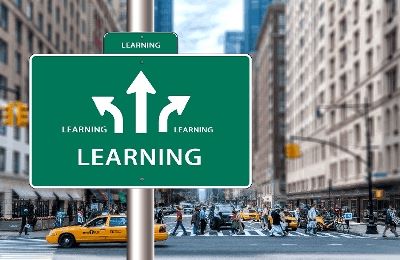4 Ways To Learn Through Reading

|
Reading is a simple, easy-to-do, and interesting pastime that everyone can do. I have seen many people spending hours reading in coffee shops, libraries, and bookstores. Whether you read for fun or read to gather information, did you know that you could also learn languages through reading? I have been using this method most of the time to learn many languages, and in fact, this is the most comfortable method that I have ever used, perhaps because reading is my hobby. Choose what to read 1. Not heavy topic, easy reading is enough  You might be a businessperson, you speak English, and you started to learn Spanish less than a year ago because you are going to expand your market to Latin America. It is normal that you are intrigued to read business review in Spanish, but hold on! Are you really ready for that? You might still be struggling with basic conversation, so it is best to improve in this fundamental area of a language first before continuing to a much higher level. Keep in mind that you are, let's say, 20 years old, and you just started to learn a foreign language. Your level is not the same as that of the native speaker of the language but it might be just the same with a 5-year-old speaker of that language. In other words, you are 20-year-old person in your language but you are not a 20-year-old person in your target language if we take fluency level as the judgement. Therefore, it is recommended to choose reading topics based on your level of understanding. If you are still considered a beginner, you can read children books. Children books usually have short sentences and less difficult words than what a novel could have. The main purpose here is to get comprehensible input so you need to start from the easiest, and let your knowledge improve your vocabulary to understand more difficult topics. 2. Not long articles that could make you fall asleep The length of the article is not important. Never think that you would learn much more when you read longer articles. In fact, I'm afraid that it might demotivate you with a large workload. Start with short articles, it can even be just one paragraph. Then, if you think that you can continue, read another paragraph. You can also take a rest in between to review new words that you have learned during your reading. The easiness to read depends on your language background because when you are reading, you see the written text of the language. An Indonesian speaker will need much more effort to read Chinese characters than Korean or Japanese speakers. This is because Chinese characters exist in Korean and Japanese but not in Indonesian. Therefore, Korean and Japanese speakers are more familiar with the characters although the pronunciation might be slightly different. 3. No time, no problem, read online from anywhere  Some people like to buy books from bookstores or borrow from libraries, some other even like to spend time in both places just to read books, without buying or borrowing. However, you need time to go to the bookstore or the library, and you may need to take public transportation, so it means that you would spend much more time not reading. We are lucky nowadays because we have the internet, and the internet has changed our way of life. You can simply google any topic you want to read or download. If you are a typical busy person who doesn't have much time to spend in bookstore or library, you can read online on the way while commuting or waiting. You can read from anywhere! And you will never run out of time to read. I read almost everywhere -- at home, office, school or public places. It is free, easy, and fun because if you do it online, you also have the ability to share it with your friends what you have just read instantly. This is because many websites have had social media sharing buttons nowadays. 4. No worries, you can read anything I have mentioned about reading children books. Besides, you can also read other written media, such as magazines, newspapers, novels, and even brochures and posters. Whatever you read, you will learn something, and reading activity helps you to improve your vocabulary. If you read about lifestyle magazines, you will learn many words relating to daily life. If you read about brochures, you can learn words related to the products or service being promoted. When you go to public places, such as an airport, train station, or shopping mall, you will most likely see announcements or signboards in two or more languages. This is because these places are usually places that foreigners would go. You can even learn many new words by reading announcements and signboards! In general, English is the common foreign language used in this context but if you are lucky, you would also see the text written in multiple languages. Know more words 1. Read and check dictionary  I still remember when I just came to Taiwan, a dictionary was my "good friend". I didn't speak Mandarin and didn't recognize Chinese characters. I really pushed myself to the max to survive in this foreign land. I carried a dictionary app wherever I went, and I checked words in it anytime, anywhere. Apparently, this habit continues to grow in me and I still check a dictionary to learn languages nowadays. However, I don't always check a dictionary because it sometimes makes my reading not fun at all, so what I do is to check the word only if it has appeared multiple times. A word could have multiple meanings, so understanding from the context is still necessary. You sometimes can even guess the meaning! There are many digital dictionary available online, and perhaps, Google Translate is the most popular. Personally, I think that it is quite good for translating single words, however, translating longer text would still be better done by human. 2. Read first in the language that you understand Some popular books are translated into multiple languages in order to be able to capture a much larger part of the market from different countries. One of the most popular is _The Little Prince_. This novel is even available in Esperanto! Apart from books, you can read articles like those in Wikipedia. I like Wikipedia so much. All of the articles are available in more than 1 language. It means you have the capability to read the same topic in several languages, and you can start with the language you understand in order to get the main idea of the article before reading it in other languages. 3. Prepare a notebook, easy for review  When you see important words and phrases while reading, you can write them down in a notebook so you can review them later whether to refresh your memory or to use the words and phrases in real conversation. You can even create your own phrasebook after you have accumulated many words and phrases. Through this method, I have created a phrasebook template in which I use English as the first language and second language could be any languages that I want to learn by using this book. The content consists of words and phrases that I think would be useful for me, that I would use in real conversation, such as some phrases about meeting new people and ordering food in the restaurant. 4. Which one is more important: vocabulary or grammar? This is one of many frequently asked questions. I believe that both vocabulary and grammar are important for mastering a language. It is always best if you can excel in both areas, but which one would you choose when you have limited time and resources? Grammar comprises a set of rules about constructing sentences. It is like the walls of a building. On the other hand, vocabulary consists of words. If you know many words but lacking of grammar skill, you might be able to express your thinking in several words, but not in a complete structured sentence. On the contrary, if you are good in grammar but not in vocabulary, it would be difficult for you to express yourself because you don't know which word to use. In my opinion, I prefer vocabulary over grammar because I want to have the capability to express myself in different ways. With the lack of grammar skill, I might speak like an infant but that doesn't matter for me because I believe that I can learn from my mistakes and as the time goes by, my skill will increase by itself. |
|
Learn how to write 1. Learn linking words  Linking words connect ideas among sentences. If you are not familiar with linking words, they are words you can see in the beginning of the sentence or in the middle of a sentence. Some of the examples are "because", "then", "so that", to name a few. As you are reading, you will see these words repeatedly, and soon after that, you will realize that these words are special words that you will quickly remember. Omitting any of these words would make the sentence sounds unnatural or even bad. Because linking words are important in either speech or writing, they can be the priority to learn because you sound better and more fluent when you incorporate them into your speech. To my astonishment, linking words are not commonly taught in language classes. 2. Learn writing skill If you want to write well, you need to practice writing. However, it is recommended to learn how other people write before you write. Learn their writing styles, pay attention to the punctuations, learn how they start the first paragraph and how they finish the last paragraph. Learn also how they explain the main topic of the writing, and how many lines in a paragraph they use or how many paragraph per subtopic they have. 3. Learn how to construct sentences  When you read, you get comprehensible input of the language. That is how you can understand the meaning. However, your understanding doesn't guarantee your proficiency. If you can understand 90% of a text, it doesn't mean you are able to explain the main topic easily. It is because your brain needs to think of words and grammatical rules and how to combine all of these as you are constructing sentences. By frequent reading, you can get ready-to-use sentences that you can mix and match together, or substitute part of it with part of other sentence. For example, you see "I want to go home because my mom is waiting" and "You want to eat because you are hungry", then you can make a sentence by using parts of these sentences "I want to go home because you are hungry". It might be ridiculous but this method is effective to train your brain. 4. Learn conversation Imagine you are in a situation where you meet someone who can converse with you, and both of you start asking questions and answering to each other. You can use your imagination to create dialogues by having one character to ask questions and the other character answer the questions. When you are more experienced, you can even create more formal dialogues, such as closing a business deal or speaking in a business meeting. Imagine yourself being the main character, what would you say and how would you say it? Create the picture in your mind so you can be better-prepared when you face the situation in real. Not just language learning 1. Read about other cultures and customs  Almost every language learner I know mentioned that they also learn about other cultures when they learn a new language. Some others even stated that their motivation of learning a new language is because they like the culture of the speakers. Language is certainly more than just a communication tool. It has history that evolves with time. Have you ever wondered why most countries in Latin America have Spanish as their official languages? Why English is the most popular international language nowadays? Or why Spanish, Portuguese, Italian, and French are similar? When you learn a language, you can also learn about the story behind these facts, about the language past, present, and future. 2. Read about the latest information I like to read news articles and I read it every day. It is much more fun when you can read news from different countries news agencies and read about what is happening in other side of the world in different languages. Although there are also news from a country that is available in several languages in order to reach a greater scope of readers. You may also find that some information is reserved much more in the original language than in foreign languages where it is usually translated. This kind of information is usually more detailed information, such as about the local history or any news that is not big enough to reach worldwide market. 3. Be able to use different perspective and different way of thinking  Besides knowing the latest news, you can also learn how to see matters from different perspectives. For instance, American media must have different point of view towards Middle Eastern countries than Indonesian media. You can only acquire this knowledge when you know different languages. When you see things from different perspectives, you will tend to have an independent thinking rather than just believing. If someone commented negatively about something, it doesn't mean that the fact is as what is commented. Having the capability to think independently makes you a critical thinker, you would never jump into the conclusion before thinking about it twice or thrice. 4. Increase knowledge On top of everything, learning language through reading benefits everyone in many aspects. You can learn about vocabulary, grammar, phrases, writing skills, and you can even get the latest information and be a critical thinker. You can even create your own phrasebook that you can use to learn any languages and you can learn quickly because you prioritize some words and phrases that are essential for you in real conversation. Knowing more languages certainly gives your more opportunities to talk with people from different backgrounds, and thus, you get to learn about their way of life and mindset. By the time you reach this phase, you will feel that this world is not that small as what you used to believe. There are much more to uncover when you leave your comfort zone, such as speaking foreign languages. You will start to accept and cherish differences that we have as human beings. Teddy is an avid language learner, blogger, engineer, and a collector. He has a dream to make this world a better place through language learning. Apart from learning languages, he also likes reading and playing ukulele. You can speak with him in Medan Hokkien, Indonesian, English, Chinese Mandarin, Spanish, and Esperanto. Visit his blog at www.neeslanguageblog.com |
| 4 Ways To Learn Through Reading | |||
| Writer: | Teddy Nee | ||
| Images: | |||
| |||
All images are Copyright - CC BY-SA (Creative Commons Share Alike) by their respective owners, except for Petey, which is Public Domain (PD) or unless otherwise noted.
|
Searching for language resources? Find entertaining and educational books for learning a language at Scriveremo Publishing. Just click the link below to find learning books for more than 30 languages!
| |
comments powered by Disqus











































